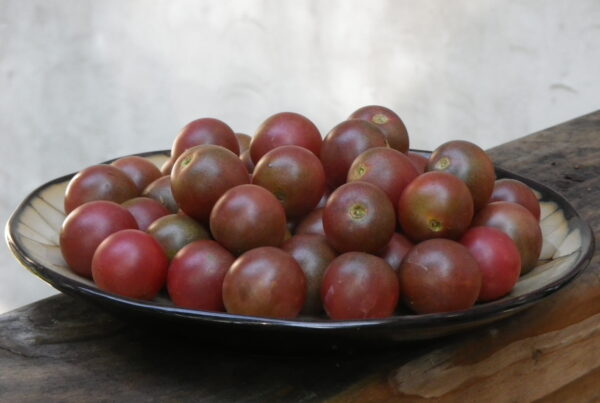Wanted!
Your Stories about Farming in the Age of Climate Crisis
I am gathering stories about how climate changes have impacted VABF farmer members’ operations, what strategies or innovations you have found helpful in coping with these impacts, and how a better, more organic/conservation-oriented Farm Bill can help you meet the climate challenge. Specific questions include:
- What changes in weather patterns (heat, cold, rainfall, seasonal patterns) have you noticed at your location?
- How have these changes affected your farming operation, crops, livestock, workers, and economic returns?
- What strategies or innovations have you used or experimented with to cope with climate challenges?
- Have you changed your crop mix, crop rotation, cultivars, livestock species, or breeds in response to the demands of a shifting climate?
- How well have your climate adaptation strategies worked for you?
- Have you utilized, enrolled in, or applied for USDA conservation funding (Environmental Quality Incentives Program, Conservation Stewardship Program, Conservation Reserve Program, or other) to implement soil health or other climate resilience practices? If so:
- Did you apply for or receive Inflation Reduction Act (IRA) conservation funding specifically for Climate Smart Agriculture and Forestry (CSAF) activities?
- How helpful or satisfactory have you found the conservation programs?
- What would you like to see in the next Farm Bill and in future USDA programs to help you meet the challenges of farming in this era of climate change?
I am interested in hearing your stories for two reasons. First, I will lead a breakout session at the VABF / Virginia State University Small Farm Outreach Program (SFOP) Summit to be held in Roanoke on January 19-21, 2024 (see https://vabf.org/2024-vabf-sfop-summit/). It will be Meeting the Climate Challenge: Sharing Stories, Co-creating Solutions. Your stories, shared ahead of time or during the workshop, will play a central role in developing better strategies for meeting climate challenges specific to our region.
Second, as the next Farm Bill moves forward in Congress during 2024 (after delays caused by numerous non-agricultural crises during 2023), the National Sustainable Agriculture Coalition (NSAC) will be utilizing farmer stories as a key advocacy tool for a Farm Bill that truly supports organic and regenerative farmers to become part of the solution through reduced greenhouse gas emission and enhanced climate resilience, while reversing the trend toward industrial consolidation in agriculture and achieving racial equity throughout the US farm and food system. Members of the House and Senate Agriculture Committees and other decision makers need to hear farmers’ stories about the climate impacts felt “on the ground,” their efforts to mitigate those impacts, and especially how the Farm Bill and USDA programs can help farmers stay in business while becoming part of the climate solution. If you would like to provide a farm story to help NSAC advocate for this vision in the current Farm Bill cycle, I can put you in touch with NSAC staff who can help you develop your story.
If you would like to share your story for either or both of the above purposes, please contact Mark Schonbeck, schonbeckmark@gmail.com or 540-835-7664. Note that if you have observations or opinions to share on this topic yet would rather stay anonymous, I would be very interested in hearing your insights and experiences, as they will inform my presentation at the Conference, and I will maintain confidentiality.
2024 EQIP and CSP in Virginia
Application Ranking Date March 8, 2024
Virginia NRCS has announced its Application Ranking Dates for both the Environmental Quality Incentives Program (EQIP) and the Conservation Stewardship Program (CSP): March 8, 2024. This means that if you submit a completed application for one of these programs anytime between now and then, you will be considered for receiving a contract for financial assistance in implementing a suite of conservation practices that you choose to address soil health, water quality, or other conservation objectives that you select.
In addition to regular Farm Bill funding for CSP and EQIP, the Inflation Reduction Act (IRA) of 2022 has provided additional funding for both programs, specifically to support Climate Smart Agriculture and Forestry practices such as cover crops, diversified and resource-conserving crop rotations, organic soil amendments, conservation tillage, and advanced grazing practices like management intensive rotational grazing and silvopasture.
With farmer demand for CSP and EQIP contracts far exceeding current funding levels, the supplemental IRA Conservation funding has been a tremendous boon, both for farmers seeking to participate in the highly oversubscribed and underfunded CSP and for the expansion of climate-smart farming practices. So – let’s make the IRA climate smart conservation funding a regular part of conservation funding in the upcoming Farm Bill. This is a top priority for agricultural conservation and climate resilience, yet some members of Congressional agriculture committees would like to rescind (cancel) the IRA conservation funding. The more we use the IRA funds in the coming months, the fewer dollars can be “clawed back” – and the stronger our case for making the IRA climate smart conservation investment a regular part of Farm Bill programs.
So, if you would like a “hands-up” to achieve your soil health, resource stewardship, and climate resilience goals, ask at your district conservation office about EQIP and CSP, or visit the Virginia NRCS website for more information. Ask about IRA funding for climate-smart practices.
Special Opportunity
James River Buffer Program
Designs and installs riparian forest buffer at no cost to you
If your farm is located within the James River watershed and you would like to plant a forested buffer to protect water quality, provide wildlife habitat, and improve farm biodiversity, check out the James River Buffer Program. The James River Association, the Virginia Department of Forestry, and the Chesapeake Bay Foundation are working with farmers and landowners across the middle and upper James River watershed to restore or create forest buffers that improve the quality of local waterways. The program works with you to select tree species, plants the buffer, and provides maintenance for the first three years at no cost to you. Plantings can include income generating species such as sugar maple for syrup production.
Take Action:
Support the Converting Our Waste Sustainably (COWS) Act
Bipartisan, bicameral bill HR 4327 and S. 2479
The Converting Our Waste Sustainably (COWS Act) would help livestock producers to implement composting and other solid manure handling systems as well as pasture-based livestock systems as a means to avoid or minimize anaerobic manure storage (e.g., lagoons) and associated methane (greenhouse gas) emissions. Modeled on California’s Alternative Manure Management Program, this legislation would provide small and midscale livestock operations with vital financial and technical assistance to adopt these vital resource-conserving and climate-mitigating measures.
The COWS Act was introduced in the House and the Senate this year. H.R. 4327 is sponsored by Representatives Jim Costa (D-CA), David Valadao (R-CA), Chellie Pingree (D-ME), Brian Fitzpatrick (R-PA), Michael Lawler (R-NY), Josh Harder (D-CA), Jimmy Panetta (D-CA), and Jasmine Crockett (D-TX). S. 2479 is sponsored by Senators Alex Padilla (D-CA), Sherrod Brown (D-OH), Martin Heinrich (D-NM), and Peter Welch (D-VT).
Call your Senators and your Representative today to urge them to co-sponsor this bill. When you call, ask to speak with the staff person in charge of agricultural issues. You can reach Senator Mark Warner at 202-224-2023 and Senator Tim Kaine at 202-224-4024. If you do not know your Representative’s phone number in DC, call the Capitol Hill Switchboard at 202-224-3121.
Shaping the Next Farm Bill
Process delays and ongoing opportunities
As noted above, the process of developing the next Farm Bill has been delayed by multiple other issues consuming Congressional attention. While this creates problems, it also extends our opportunity to shape the new Farm Bill through promotion of “marker bills” intended as a roadmap toward a more regenerative, climate-friendly and climate resilient agriculture and food system.
In Virginia, Rep Abigail Spanberger (D-7th) is our one member of the House Agriculture Committee, and she has been a strong advocate for sustainable, organic, socially just, and climate-friendly agriculture. She wants to hear from you what you need in the next Farm Bill to meet the challenges of farming in the era of climate change. Contact her, tell her your story and your highest priorities for the Farm Bill, including specific programs or marker bills that are most relevant to your operation and circumstances.
Virginia’s Senators Mark Warner (202-224-2023) and Tim Kaine (202-224-4024) do not serve on the Senate Agriculture Committee; however, they both place high priority on protecting the Chesapeake Bay watershed ecosystem and developing sustainable, local/regional, and socially just food systems that will end hunger in Virginia.
Current Farm Bill priorities include:
- The Converting Our Waste Sustainably (COWS) Act – see above.
- Making the Inflation Reduction Act (IRA) funding for climate smart agricultural and forestry practices permanent. See above and NSAC blog posts on positive impacts of IRA conservation funding, including increased dollars available to farmers.
- Organic research marker bills, including Strengthening Organic Agriculture Research in the House and Organic Science and Research Investment in the Senate. See the Organic Farming Research Foundation (OFRF) blog posts on SOAR and OSRI for more.
- Reform Crop Insurance and Commodity Payments programs so that they support smaller to midscale diversified farms, not just industrial scale commodity production. See the NSAC Blog on Insurance and Commodity Reform to learn more.
- The Strengthening Local Meat Economies Act would support smaller-scale independent livestock farmers and meat processors by reforming USDA meat procurement
Other NSAC News Stories and Blog Posts
Restoring Agricultural Diversity through Seed Breeding
Farmers have traditionally been the keepers of crop seeds and stewards of the genetic diversity that allowed crops to adapt to a wide range of climate and soil conditions, and to meet the nutritional and cultural needs of human communities. Throughout the 19th Century, the USDA played a vital supporting role in farmers’ seed utilization and stewardship, providing free seed packets of a tremendous diversity of crops and cultivars. The 20th Century saw a tremendous sea change that shifted seed ownership and production from farmers to mega-corporations. Now, the 21st Century movements toward regenerative agriculture, climate resilience, seed sovereignty, and recognition of Black, Indigenous, and other Traditional Ecological Knowledge (TEK) open new opportunities to restore agrobiodiversity and farmer rights to grow, save, and select seed, as this NSAC seed blog part 1 describes in depth.
Office of Urban Agriculture and Innovative Production
A new program with vast potential
The 2018 Farm Bill established the Office of Urban Agriculture and Innovative Production (OUAIP) to promote urban farms, community gardens, and innovative indoor agriculture enterprises linked with food waste reduction, community composting, and community food security. Converting disused urban land, rooftops, idle warehouses, and shipping containers into food producing gardens brings multiple benefits from improved food security and access to nutritious fresh produce to new employment opportunities for inner city youth, strengthened community relations, and enhanced urban green space that can reduce city “heat island” effects. See the NSAC blog on impressive OUAIP achievements during its first few years of operation.
USDA Announces $27 million to Support Historically Underserved Producers
In early October, the USDA’s Outreach and Assistance for Socially Disadvantaged and Veteran Farmers and Ranchers program (aka “Section 2501”) announced awards to 41 applicants seeking to help minority, veteran, limited-resource, and other historically disadvantaged producers get successfully established. Awards went to California Farmlink to help aspiring farmers gain access to farmland, to Michigan Integrated Food and Farming Systems to establish peer-to-peer networks to help new and underserved producers establish successful enterprises and access USDA programs, to Cultivate Kansas City to expand their farmer training and business incubator programs, to Foodshed Capital to provide customized support to non-White producers implementing regenerative methods, and to many other projects. See NSAC blog on the 2023 Section 2501 awards for more.






